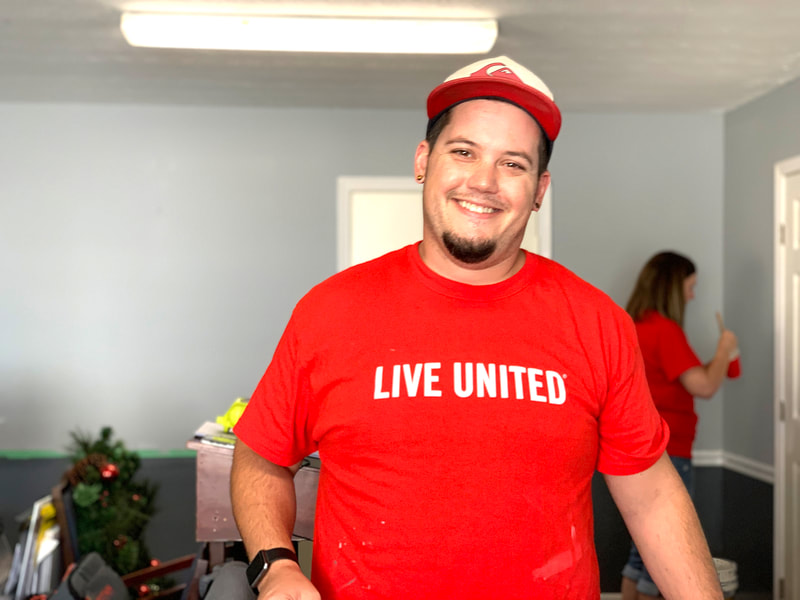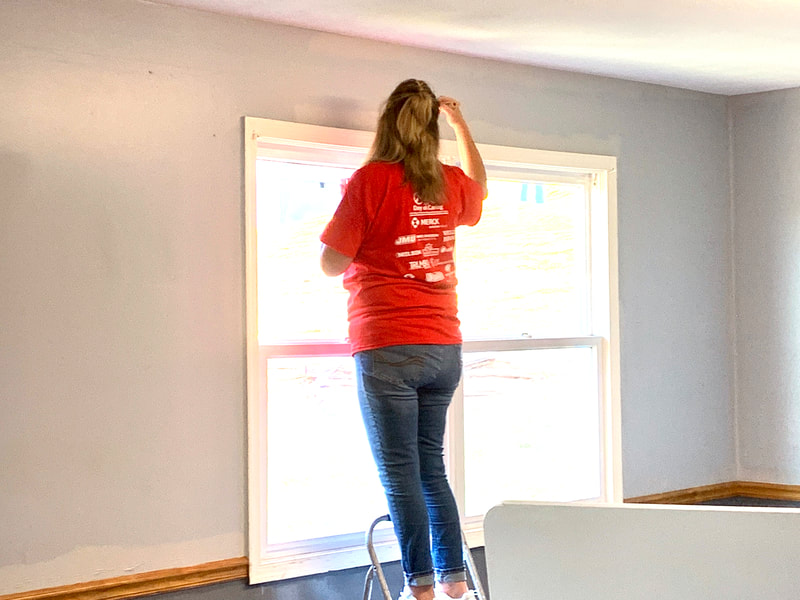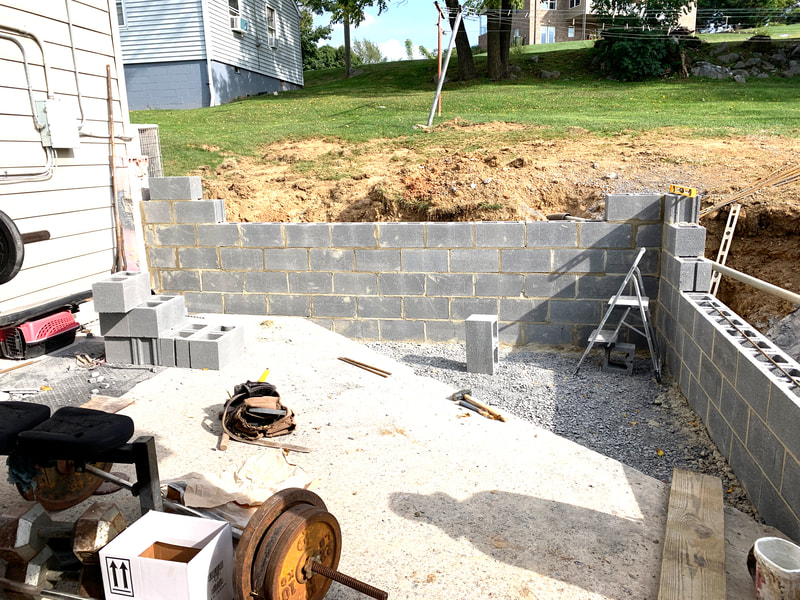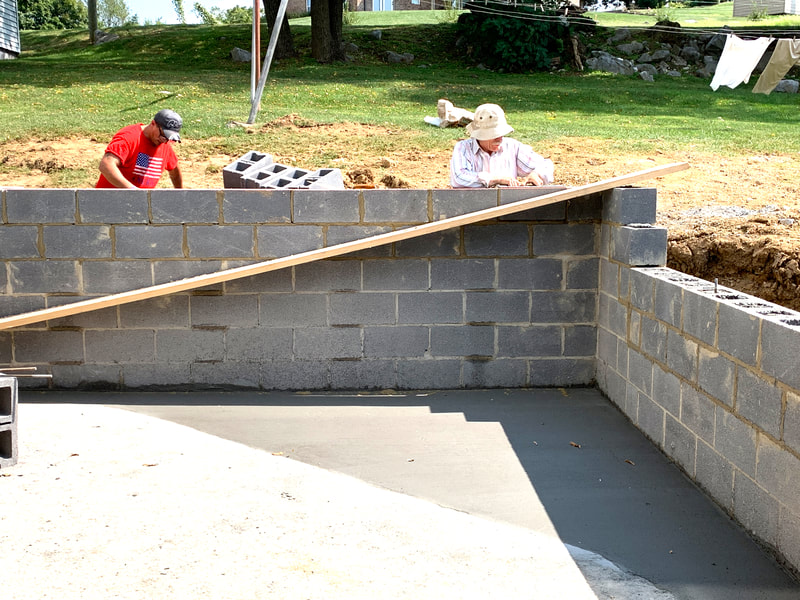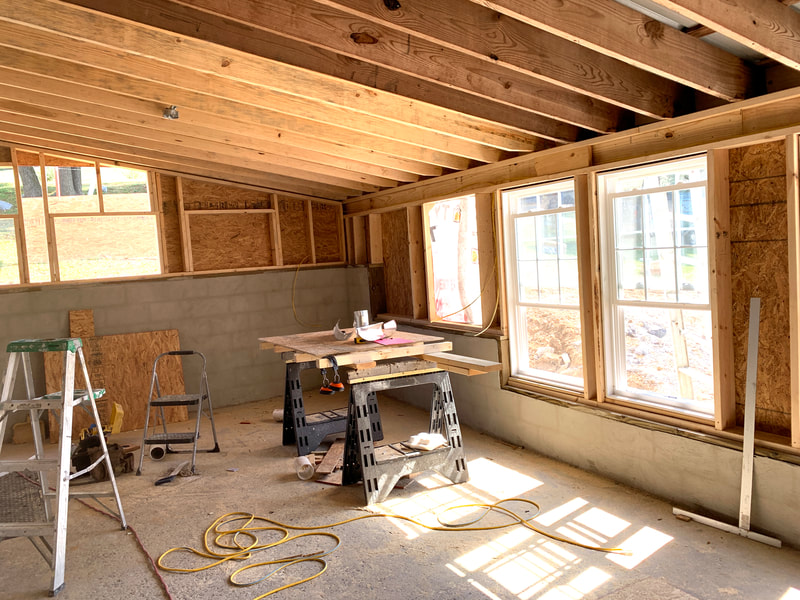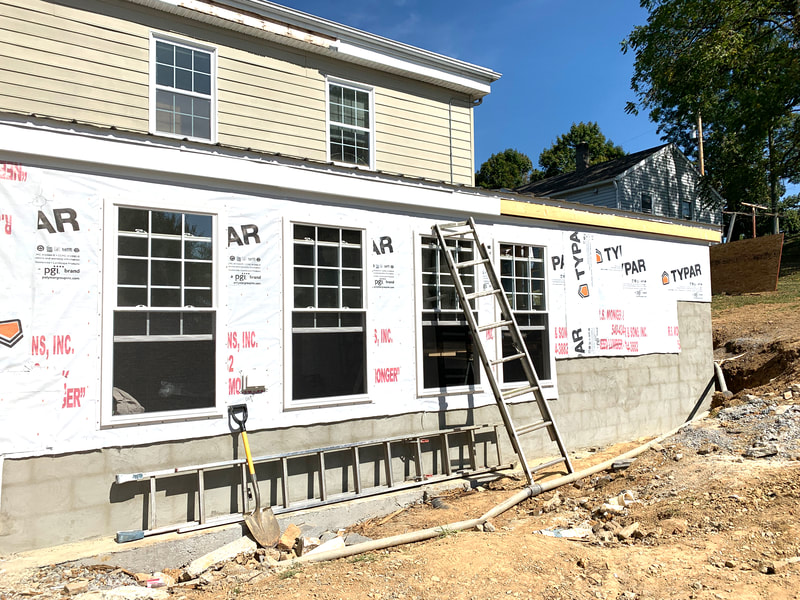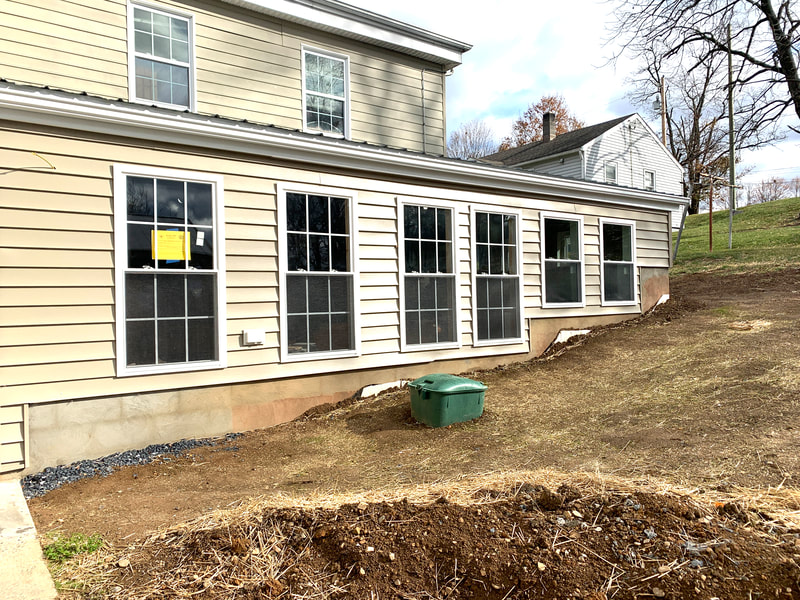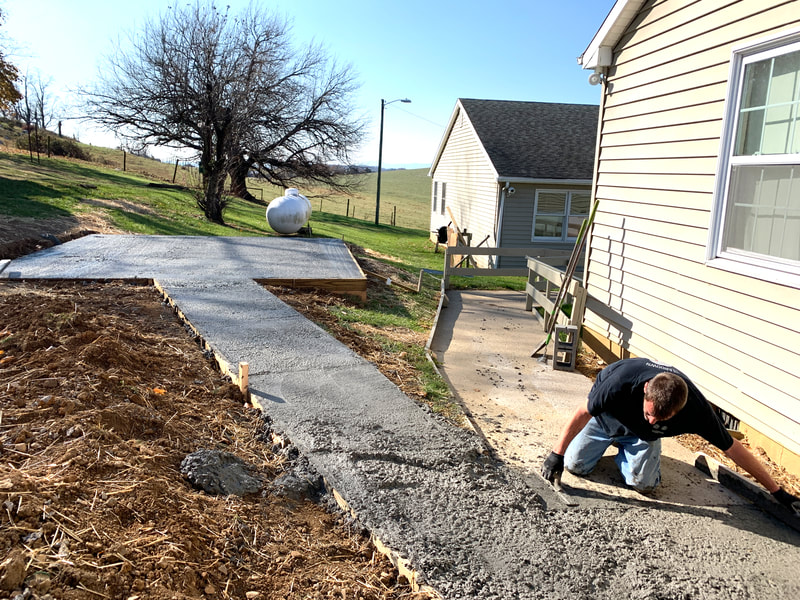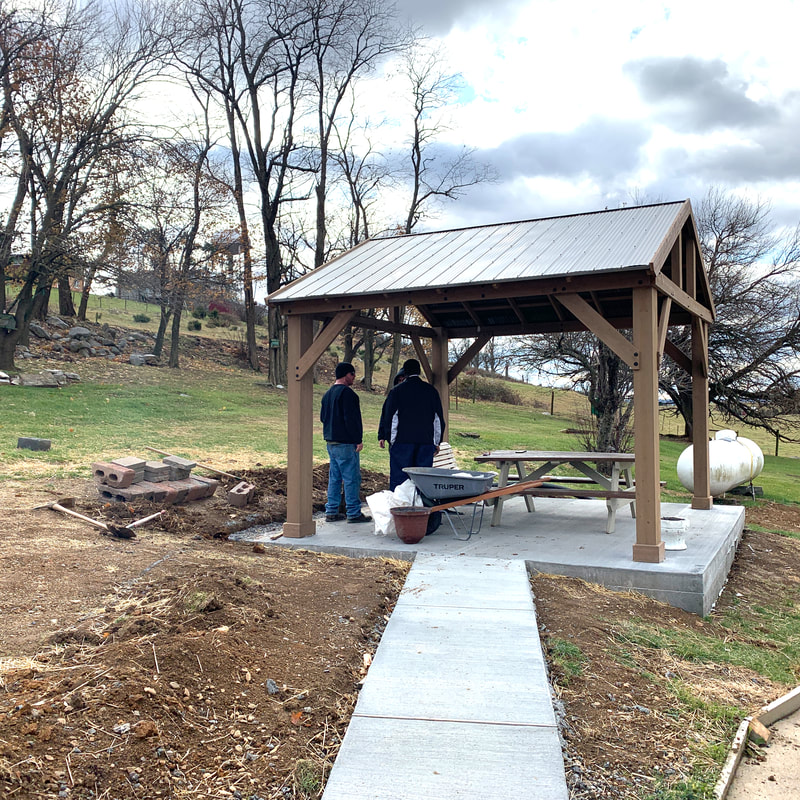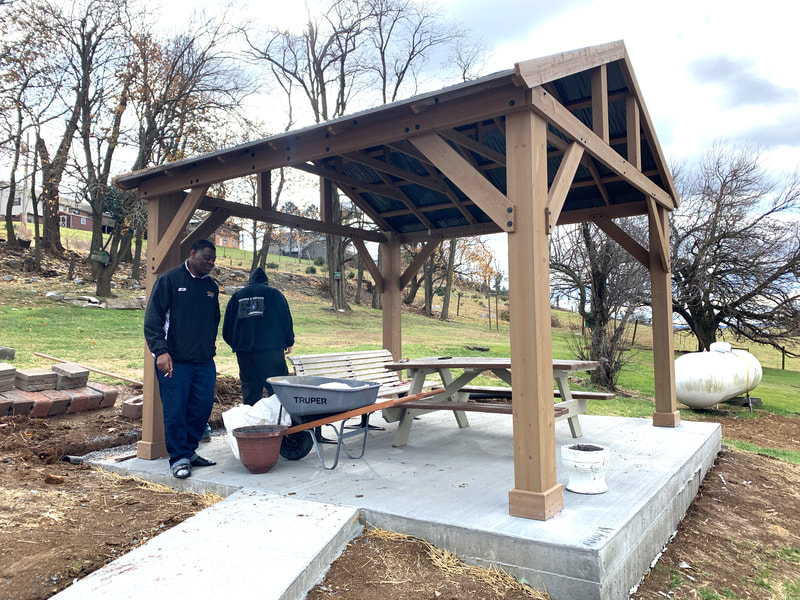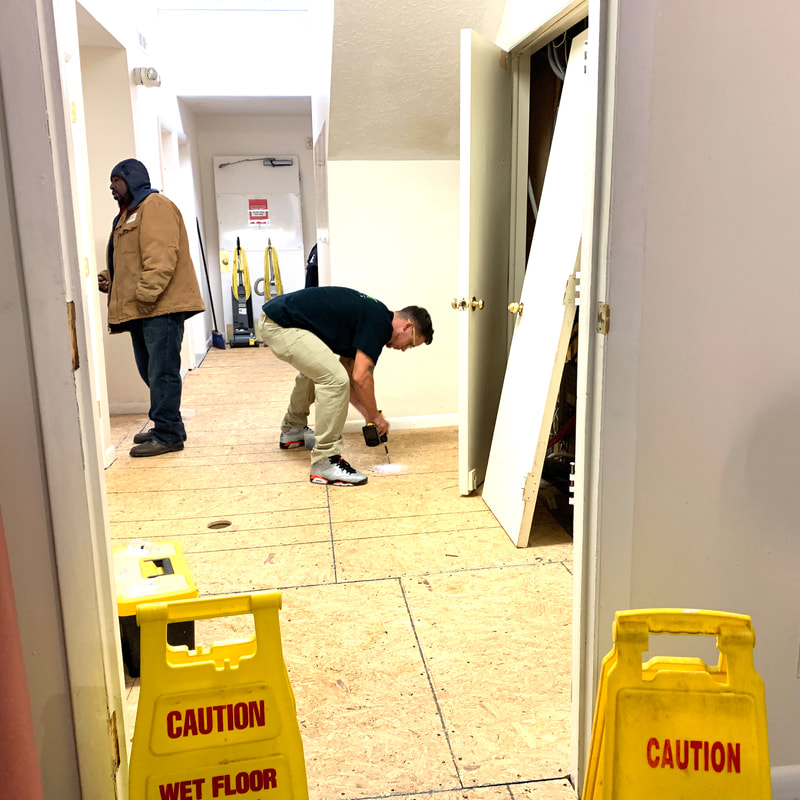|
JMU Students Work on Research and Volunteer Projects at Gemeinschaft Home During the Fall 2019 Semester. 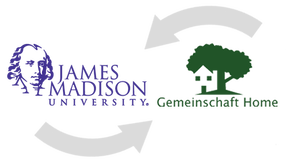 James Madison University prides itself on being the “engaged university,” meaning that the institution seeks to build partnerships with community organizations in Harrisonburg and the local area, to offer students contexts for learning that take them beyond the traditional classroom. Over the past several years, Gemeinschaft Home has developed its relationship with JMU faculty and students, including the addition several board members who are professors there, as well as the involvement of undergraduates and graduate students from a range of disciplines and majors. Students complete internships on both the program and administrative side of the organization and volunteer a significant number of hours in a variety of capacities each semester. Volunteers help with clerical tasks such as updating documents, entering data into our database system, and organizing files, as well as assist in community events. Interns work with case managers and assist with group sessions and some work on grant writing, publications, and media projects. During the Fall 2019 semester, JMU faculty and students from the School of Music and the Department of Social Work are continuing a music program (started in 2017) that brings students to the house to collaborate with Gemeinschaft Home residents on music and storytelling projects once a week. The project has continued over the last two years, with periodic community showcases of the group’s efforts. Additionally, social work students studying organizational communication and public relations worked on a macro project during the Fall 2019 semester that focused entirely on fundraising ideas—via social media and online donation platforms—aimed at the college student population. They conducted research and produced a framework for implementing their proposed idea that will be quite useful for the organization. Graduate students in the Masters of Public Administration program, enrolled in a graduate methods course that aims to expose students to a series of analytical techniques for practical applications in the public and nonprofit sectors, dove into the archives and files of former residents during the Fall 2019 semester. This hands-on experience for students enabled them to create a database of information about the population we serve and how the organization might gain insight from this information to understand and improve our programs and practices. For more information about volunteer and internship opportunities, please visit http://www.gemeinschafthome.org/get-involved.html. United Way of Harrisonburg and Rockingham County launches annual community event, bringing volunteers to organizations across the area, including Gemeinschaft Home. 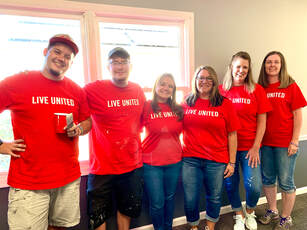 Left to right: Cody Callahan, Wilson Smith, Donita Quinn, Sherry Monger, Heather Miller, and April Ramirez Left to right: Cody Callahan, Wilson Smith, Donita Quinn, Sherry Monger, Heather Miller, and April Ramirez On Wednesday, September 25, a group of six volunteers—all employees of Massanutten Resort—arrived at Gemeinschaft Home bright and early. Their task for that morning and afternoon was painting the program room, a large space located in the Bender Building behind the main house, where group activities and meetings take place daily. It’s a high-traffic area, and the walls and doors had begun to show signs of wear and tear over the past couple of years. Team leader Donita Quinn, joined by five of her work colleagues at Massanutten Resort, arrived around 9:30am—all wearing red “UNITED” t-shirts designed for the event, and they started work right away, after a brief introduction and tour of the facilities. Quinn explained that their group specifically selected Gemeinschaft Home as their project site, because of their desire to support our mission to serve formerly incarcerated individuals. Their efforts included sanding, taping off areas of the walls to accommodate two colors, and applying paint to the walls, doors, and trim. After a short lunch break, the group worked a few more hours into the late afternoon. We are grateful for the time and energy these volunteers graciously devoted to Gemeinschaft Home; their work was immediately noticed and appreciated by the current program participants and staff, as the room is now bright, updated, and inviting! The project, part of a larger community-wide initiative, is organized every year by United Way of Harrisonburg and Rockingham County, with the support of local businesses sponsors. This year, the event highlighted 90 projects, at 38 organizations, with over 650 volunteers! Gemeinschaft Home Residents will soon have a workout room, made possible by the 2020 Vision for the Future Fundraising Campaign, and a covered sitting area with connected walkway.  Routine maintenance and repairs are just part of life at Gemeinschaft Home, but recent construction will soon bring a needed asset to the home—a workout room. Until this past summer, the only onsite exercise options residents had were a few benches and free-weight sets, kept outside on the back porch. During the warmer months, residents often used the equipment, but in the colder seasons, the weather made working out unbearable for most people. Yet, having a place to work out and doing so regularly—whether with free weights or other means—is a practice that many individuals pick up while incarcerated and wish to continue. Regular exercise provides both physical and mental wellness, and the opportunity to work out should be a necessary part of residents’ experience at Gemeinschaft Home, too. With funds raised so far in the 2020 Vision for the Future campaign, we broke ground on a new workout room this past summer, and we are in the final stages of completing the construction portion of the project this month. We are currently still raising funds and searching for commercial-grade workout machines (treadmill, bicycle, etc.), rubber mat flooring, as well as for updating the free-weight benches and equipment. The new room is an addition to the back of the main house, created by closing in the existing porch area, where the exercise equipment was already located. The project included demolishing an existing retaining wall and constructing a new one that serves as the exterior wall for the workout room. The former porch also served as an outdoor sitting area with benches and a picnic table; these items were moved further back into the yard, placed onto a concrete base (with connecting walkway), and covered by a gazebo. The flooring in two other areas, the back hallway and the Blosser Lounge, are also being overhauled, with new sub-flooring and high-traffic carpeting. We are grateful to the individuals who provided time, labor, and services, including: Russ Leinbach (including contributions from the builder’s guild), Sam Miller, John Butler, Mark Capps, Phil Blosser, Moss Construction, and David Stenson Construction. Gemeinschaft Home’s New Case Manager Discusses Need for Local Women’s Residential Program 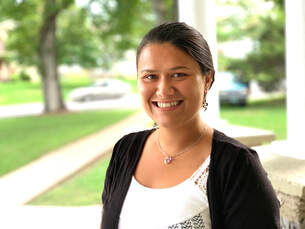 Michelle Roberts: Gemeinschaft Home case manager. Michelle Roberts: Gemeinschaft Home case manager. This past summer, Michelle Roberts joined the Gemeinschaft Home staff as a case manager, working with female participants in the Day Reporting program. A recent graduate of Blue Ridge Community College (with a degree in Human Services), Roberts had been working as an unpaid intern for two semesters and then as a paid summer intern at Gemeinschaft Home, which made her transition into the new position rather seamless. Over the last decade, Roberts has faced her own cyclic battle with addiction, recovery, and relapse. During this time, which began in her teenage years, Roberts’ use of heroin eventually resulted in criminal charges and incarceration. While she experienced moments of positive growth—usually after participating in a mandated recovery program—inevitable relapses led to multiple overdoses, periodic homelessness, and re-incarceration. As she grew older, Roberts began to recognize that the loop was never-ending and that the limited number of outcomes from a heroin addiction—overdose (death) or incarceration—were no longer tenable. She re-established connections with her family that had been lost during her teens and early-20s, and she credits her parent’s effort to learn more about substance abuse (e.g., joining an Al-Anon group) as making that possible. She points out that they started to see her not as a deviant person intent on breaking the law, but as someone who fought a heroin addiction that led to criminal behavior. Roberts also acknowledges her husband Josh’s supportive role in her work to remain substance free for years. Roberts is currently pursuing a bachelor’s degree in social work at Mary Baldwin University, and she hopes to forge a career path that will enable her to draw on her lived experiences as well as her formal education in order to serve others—particularly women who struggle with substance abuse. The Day Reporting program provides such a context for Roberts to assist women who face the same issues that have shaped her own life. However, it also endows with her with unique insight on the precise obstacles to success for participants in the program. While the structure is effective overall—e.g., required drug screens, mandatory individual and group sessions, case management, etc.—the day-reporting framework itself is inadequate and/or unnecessarily cumbersome for many participants to successfully complete the program. A safe, stable home environment and access to reliable transportation are the two primary barriers debilitating women in the program. Roberts argues that “women need a safe place to foster their recovery,” where they are away from “unhealthy relationships and the temptation to use and where recovery becomes an all-day, every-day focus, rather than a couple of hours a week.” A full-time residential program for women would achieve this purpose, yet there is no such service available in the local area, representing a dire need in our community, especially for women exiting incarceration. Many of the clients Roberts works with in the Day Reporting program are homeless, which creates a daily challenge to survive as well as to adhere to program guidelines and mandatory appointments. Several of her clients often find a place to sleep at night in one of the local shelters, but such accommodations are never guaranteed and present even further complications. “It’s hard to focus on recovery when you’re unsure where you’re sleeping tonight,” Roberts says, and, even for those who have a home, “most have suspended drivers licenses or no vehicle or live outside of the city limits, where there is no public transportation.” Additionally, having a home can also mean living with a toxic partner or among others who are using substances. Roberts stresses that a residential program would give women a support system right at home, offering a safe environment that is substance-free and away from unhealthy relationships. With basic survival needs met, women enrolled in a residential program would be able to give their full attention to growth and recovery, while immersed in supportive community that fosters both accountability and responsibility. Without adequate support, the likelihood of relapse is nearly assured; for those under supervised probation (as is the case for Day Reporting participants), this means a positive drug screen and, in most cases, re-incarceration. Roberts believes that a residential program would have given her a better opportunity to deal head-on with her addiction and to learn valuable tools for coping with life after incarceration in a more productive way. Today she hopes to be part of building such a facility and giving other women a second chance at life. |
Archives
August 2023
|
